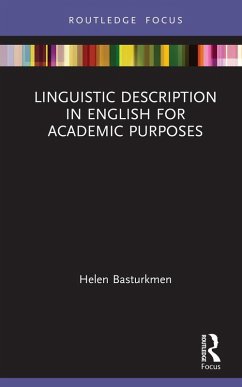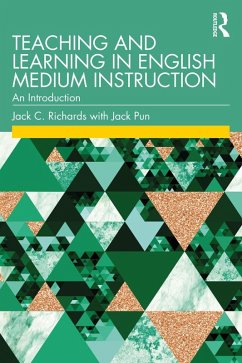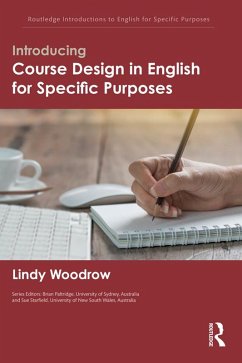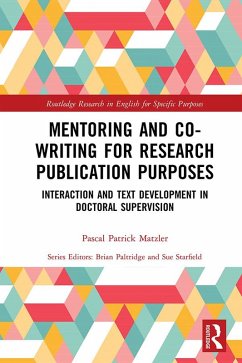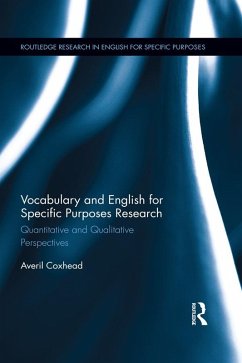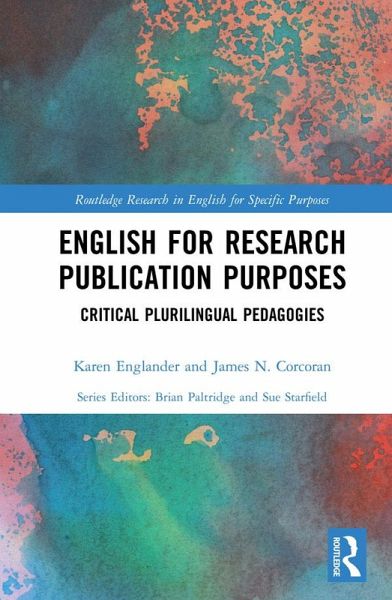
English for Research Publication Purposes (eBook, PDF)
Critical Plurilingual Pedagogies
Versandkostenfrei!
Sofort per Download lieferbar
42,95 €
inkl. MwSt.
Weitere Ausgaben:

PAYBACK Punkte
21 °P sammeln!
Scholars who use English as an additional language confront challenges when disseminating their research in the global market of knowledge production dominated by English. English for Research Publication Purposes analyses the experiences and practices of these scholars across the globe and presents "critical plurilingual pedagogies" as a theoretically and empirically informed means of supporting them. This book:. Draws on an empirical study of a Latin American university's effort to mount a course that provides support to emerging and established scholars who use English as an additional lang...
Scholars who use English as an additional language confront challenges when disseminating their research in the global market of knowledge production dominated by English. English for Research Publication Purposes analyses the experiences and practices of these scholars across the globe and presents "critical plurilingual pedagogies" as a theoretically and empirically informed means of supporting them. This book:
. Draws on an empirical study of a Latin American university's effort to mount a course that provides support to emerging and established scholars who use English as an additional language;
. Brings theoretically informed discussions of critical pedagogies, plurilingualism and identity affirmation to better serve plurilingual scholars who seek to publish their research in English-language journals;
. Provides examples of classroom activities that can be adapted and adopted to local contexts and realities in a curriculum based on critical plurilingual pedagogies;
. Proposes future directions for research into the internationally urgent, growing concerns of global scholars who produce English-medium academic knowledge for the world stage.
Incisive and cutting-edge, English for Research Publication Purposes will be key reading for academics and upper-level students working in the areas of ESP, EAP, ERPP, and Applied Linguistics.
. Draws on an empirical study of a Latin American university's effort to mount a course that provides support to emerging and established scholars who use English as an additional language;
. Brings theoretically informed discussions of critical pedagogies, plurilingualism and identity affirmation to better serve plurilingual scholars who seek to publish their research in English-language journals;
. Provides examples of classroom activities that can be adapted and adopted to local contexts and realities in a curriculum based on critical plurilingual pedagogies;
. Proposes future directions for research into the internationally urgent, growing concerns of global scholars who produce English-medium academic knowledge for the world stage.
Incisive and cutting-edge, English for Research Publication Purposes will be key reading for academics and upper-level students working in the areas of ESP, EAP, ERPP, and Applied Linguistics.
Dieser Download kann aus rechtlichen Gründen nur mit Rechnungsadresse in A, B, BG, CY, CZ, D, DK, EW, E, FIN, F, GR, HR, H, IRL, I, LT, L, LR, M, NL, PL, P, R, S, SLO, SK ausgeliefert werden.






